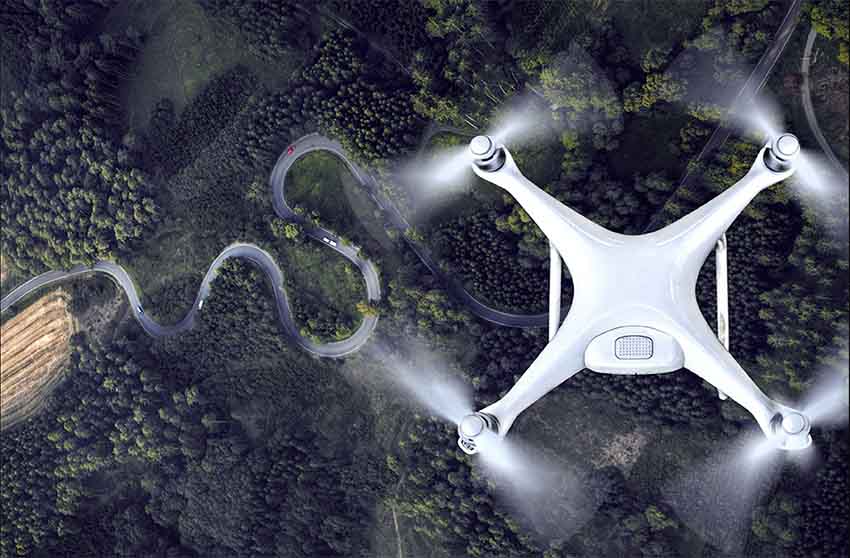Expleo is a global engineering, technology and consulting service provider. It partners with leading companies to drive business transformation and help them future-proof their operations. Expleo has over 40 years of experience developing complex products, optimising manufacturing processes, and providing quality assurance for IT systems.
Today the company has an extensive global footprint with over 15,000 highly skilled experts in 30 countries supporting customers worldwide.
Interview with Ioan-Dragoș Deaconu, Innovation Manager at Expleo Romania.
Easy Engineering: What are the main areas of activity for the company?
Ioan-Dragoș Deaconu: Expleo’s core aim is to help companies fast-track innovation. We are active across the industries that are shaping the world of tomorrow. From aerospace and automotive to banking and energy, we combine technology, engineering and consulting expertise to help our customers deliver products and solutions for a greener, smarter and more secure future.
E.E: What’s the news about new products?
I.D.D: We work closely with our customers to develop new and innovative products. We recently announced a project with a company called Stratoflight to develop a zero-carbon stratospheric spacecraft which will take passengers up to 35km above ground level. From there, the passengers will be able to step out onto a balcony and see Earth from a viewpoint unlike any other. The first flight is scheduled for 2025.
Earlier this year we announced that we were working with Thales on the customisation of helicopter pilot helmets. This uses 3D scanning and 3D manufacturing processes to fit each helmet perfectly to the wearer’s head, reducing fatigue and improving endurance. Meanwhile, our marine team is working on a closed-loop e-methanol solution for shipping, which has the potential to reduce greenhouse gas emissions from vessels by up to 92%
We also have several projects we are working on in the automotive sector relating to autonomous vehicles and e-mobility, as well as innovations across energy and utilities.

E.E: At what stage is the market where you are currently active?
I.D.D: Following the global pandemic, industries are undergoing a resurgence but still responding to some of the long-term impacts it caused. The pandemic accelerated the use of digital – such as for home working. At the same time, there is also a well-established global skills gap affecting disciplines relating to digital or engineering. As a result, organisations are looking at how they can transform their businesses to better harness technology to overcome those challenges. We have also noticed an appetite for continued innovation. As companies are again able to look forward, there is an emphasis on innovation as a means of not just improving their resilience but securing a long-term future. Innovation is a broad church and can come in the subtle form of redefining operational processes or the development of new categories of products or solutions. Both have their role to play.
E.E: What can you tell us about market trends?
I.D.D: Sustainability is perhaps the most important trend we are seeing today. National governments and international bodies such as the UN are setting ambitious targets to cut carbon emissions and reduce the impact of industries on the environment. This affects every industry; automotive, aerospace, marine, transportation and manufacturing, to name a few. As a result, it is a significant area of innovation today, with organisations looking at how they can make their operations ‘green’. New low- and zero-carbon fuels such as hydrogen are one area of focus, as is the development of new sustainable materials, such as composites made of organic materials.
The growth of digital is an enduring trend that is shaping business today. An increased emphasis on digital technologies touches every organisation. Technologies such as AI, machine learning and automation are helping solve problems such as the skills gap, and increasing efficiencies in the development of products. One corollary of this, however, is the growing importance of cybersecurity. As the world becomes more connected and more digital, it will need to be appropriately secured to protect users and their data.

E.E: What estimations do you have for 2022?
I.D.D: The global pandemic saw a slowdown in many of our key sectors, such as aerospace and automotive. While this was not unique to Expleo, we implemented a new strategy to improve the organisation’s resilience and encourage growth in the future. This strategy comprises four pillars: reorganisation, digital transformation, diversification and innovation.
In practice, this has seen us improve the cross-border collaboration of our teams to better serve clients. We’re also working toward a goal of 25% of teams to be digitally trained by 2023. We’re expanding our areas of expertise into key industries for the future, such as life sciences and are focusing our global innovation and R&D on trends that we expect to shape the future, such as autonomous vehicles, carbon-neutral aircraft and sustainable mobility.
Following the implementation of this strategy in late 2020, we saw almost immediate results with a strong rebound in 2021, culminating in a 12% year-on-year increase in turnover. The impact of our strategy is a long-term one, and we predict strong growth through 2022 and beyond. To support this, we are currently growing our workforce by up to 6,500 across the group.

